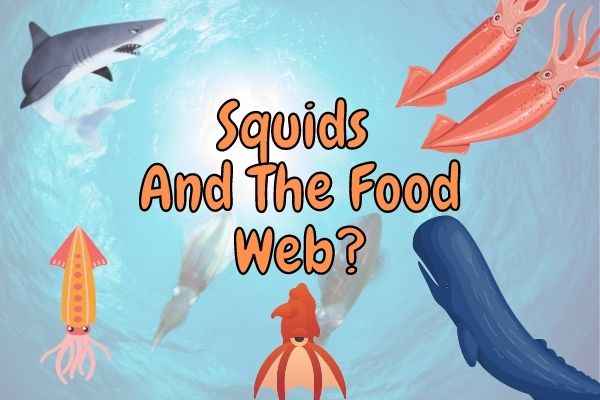Squid are a type of cephalopod, which is a soft-bodied, predatory animal that includes octopuses and cuttlefish.
Squid are fast-swimming predators that hunt fish, shrimp, and other small marine animals for food but are themselves prey for larger squids, Albatrosses, sperm whales and sharks.
Squid are predators that hunt and kill other animals for food. They have a long, cylindrical body with a mantle (a thick layer of muscle) that covers their internal organs. Their head has two large very sensitive eyes, eight arms and two tentacles, and a beak-like mouth.
Squid use their tentacles to grab prey and pull it towards their mouth. They have a very strong suckering action on their tentacles, which helps them to keep hold of prey.
Squid also have ink sacs in their mantle cavity that they can use to release ink into the water as a defensive mechanism.
This is not their only defence strategy and you can read about all squids defence mechanism here.
What is a squid’s habitat?
Squid are found in all oceans around the world, from the tropics to the poles. They typically live at depths of 200-800 meters (660-2625 feet), but some species can be found as deep as 3000 meters (9800 feet).
Squids are usually active at night, but some are active during the day. Some species like the Argentine Shortfin Squid live in shallow waters, whereas others, like giant squid, live near the bottom or the deep sea.
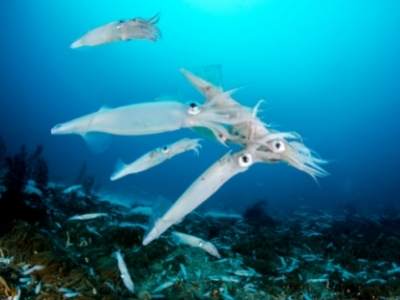
Most squid range in size from 10 centimeters (4 inches) to 50 centimeters (20 inches), with the giant squid reaching lengths of up to 18 meters (60 feet).
What is a squid in a food web?
Squids are important predators that are high up in the food chain of the ocean. They serve as tertiary consumers because they eat both herbivores and carnivores, but they are not apex predators as they are also prey for other animals themselves!
The exact position of a squid in the food web is determined by their size and weight. However, they are all carnivorous and some squids are capable of eating larger animals like tuna, crabs and penguins; placing them high up in the food chain!
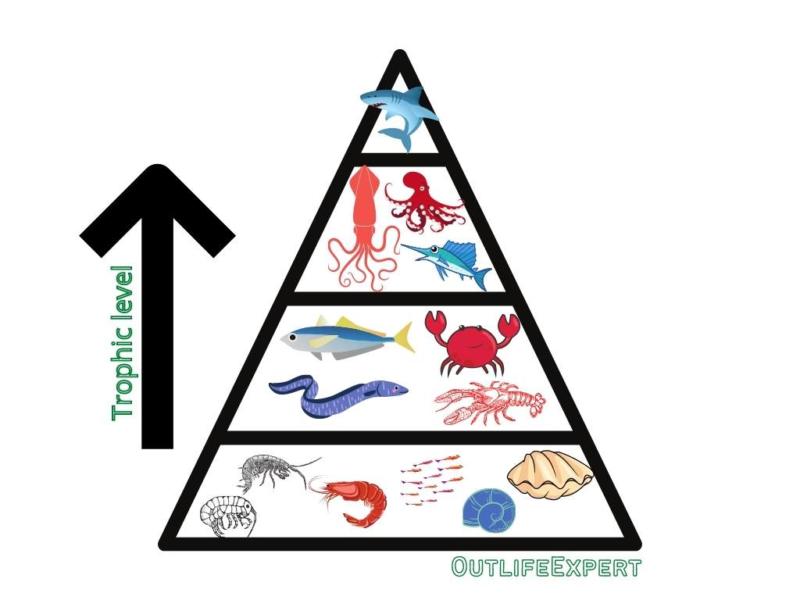
The Giant and Colossal squids are the squid species that rank the highest in the food chain. They are two of the largest living invertebrates on the earth; capable of eating a wide range of large fish and crustaceans as well as nearly all other squids and octopus species!
Essentially, there are not many animals able to prey on adult giant and colossal squid species and their primary predators are the cachalot whales and sometimes larger shark species like the great white shark.
But due to their deep sea lifestyles, very little is known about these two large squid species as they are very rarely observed!
It is known, however, that they have some curious strategies to evade their whale predators!
Like other squid species, these gigantic squids do also fight and eat each other, but they are so uncommon and far apart that they rarely meet each other and therefore larger sharks and whales remain their top predators.
Even though larger squids are superior predators, they also serve as prey to larger predators such as sharks and sperm whales.
It is not surprising that these huge soft-bodied creatures continue to dominate the ocean food web, given their highly evolved nature and fairly undisturbed habitat of the deep sea have rendered them as one of the top predators of their realm.
Small squids are also classified as predators but unlike Giant and Colossal squids, they serve as prey for a large number of animals like fish, sharks, whales, and even penguins, birds and humans!
However, squid have developed numerous fascinating techniques to avoid predators!
Are Squids Carnivores?
Squids are considered carnivores because they eat other animals for food. They are super fast hunters, but they may also hide and await they prey in silence.
They hunt by using their tentacles to grab prey and bring it to their mouths, and sometimes they use their ability to produce ink to distract their prey!
Interestingly though, the vampire squid is not a carnivore!
Contrary to its name, vampire squids don’t actually belong to the squid species and they do not drink blood! They do not even attack any other animals, it mainly filters out plankton from the deep sea ocean.
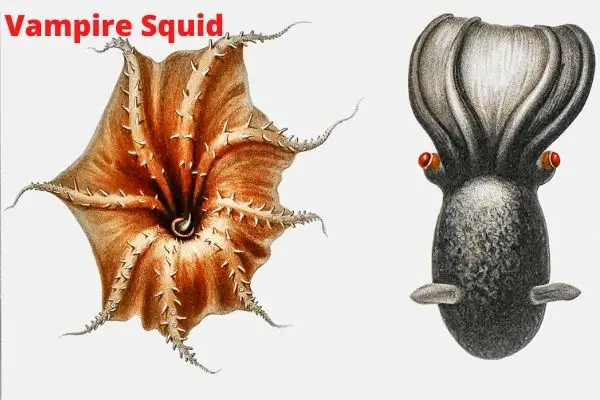
However, when disturbed, it defends itself by inverting its cape and displays its large spines that makes it look somewhat like a cape-wearing vampire, but this intimidating pose is actually harmless.
There is one caveat though – the vampire squid might not even be a “real” squid.
In fact, the vampire squid is a unique animal species that scientists classified into its own phylogenetic group.
Squid are a group of animals that don’t really form a nice convenient group and the term is used inconsistently through the quirks of historical description, but they are actually as closely related to octopuses as to squids!
As vampire squid aren’t actually one of these groups it might be useful to people to know this before calling them by that name.
Why are squids important to the ecosystem?
Squids play an important role in the ecosystem by providing food for other animals and helping to recycle nutrients and keep smaller fish species in check.
Squids are a food source for many animals, including fish, birds, and other marine mammals. They help to recycle nutrients in the ocean by eating plants and animals and then excreting them as waste. This waste is then used as food by other organisms.
Squids also help to control populations of other animals. For example, they eat small fish that would otherwise eat the eggs of larger fish. This helps to keep the population of larger fish stable.
What would happen if squid went extinct?
Without squids, the ecosystem would be out of balance. Squids play an important role in keeping the ocean healthy and productive and without them some species, including the sperm whales, would likely go extinct!
Especially for the deep sea predators in colder regions, like sperm whales, squids are an important food source and in some areas the only one!
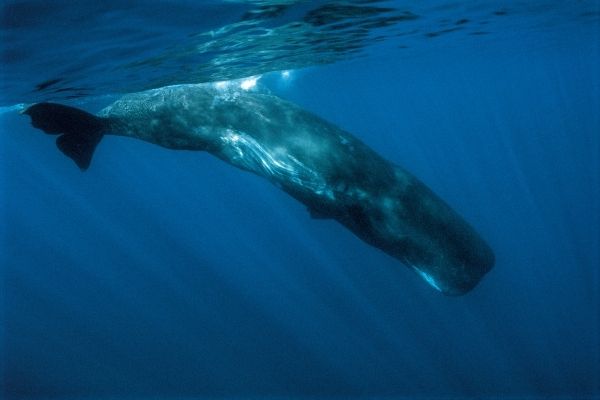
Squids are vicious predators that do make sure to keep fish populations down, which in turn keeps the prey of those fish at a sustainable level.
But we as humans would also feel the absence of squids more directly.
Squids are also used for human food, bait, and as a source of fertilizer in Southeast Asia, the United Kingdom, and the Mediterranean. They are also a source of traditional medicine in many parts of the world.
Conclusion
Squids are avid predators that are high up in the food chain, but play and important role in the food web both as predators and prey for larger animals that eat them.

